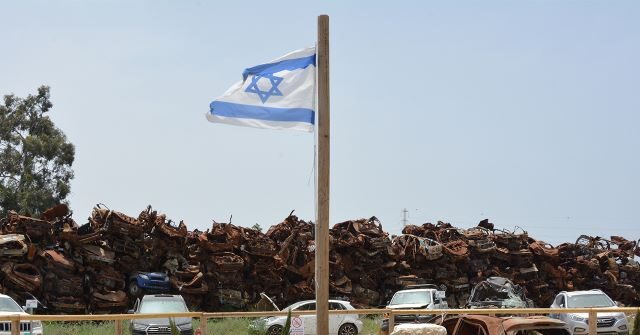On the recent broadcast of WBUR’s “Here and Now,” Kristine Beckerle, an adviser for Amnesty International and one of the authors of the organization’s report alleging that Israel is committing genocide, provided a counter-argument to claims made by Israel’s U.N. ambassador. The ambassador asserted that Israel did not initiate the ongoing conflict; instead, he accused Hamas of acting genocidally during their attacks on October 7, which involved heinous acts such as violence, hostage-taking, and threats against Israel. In response to these assertions, Beckerle acknowledged the wrongfulness of the October 7 attacks but emphasized that the central issue at hand is not just the actions of Hamas, but the ensuing actions of Israel against Palestinians in Gaza.
Beckerle highlighted that Amnesty International firmly stands against the violence exhibited by Hamas on October 7. The organization has meticulously documented the atrocities that occurred and has repeatedly advocated for the hostages taken by Hamas to be released. They have also called for accountability regarding the events of that day. However, Beckerle insisted that these discussions should not overshadow the report’s critical findings, which focus on the actions of Israel and how they specifically target the Palestinian population in Gaza. She pointed out that the key issue is the alleged genocidal intent behind Israel’s military actions, which Amnesty International argues are primarily aimed at the Palestinian civilian population, rather than Hamas as a political entity.
The conversation shifted to the broader implications of these claims. Beckerle asserted that the impact of Israel’s military strategies and operations significantly affects the lives of Palestinians, as these actions appear to be part of a systematic effort to destroy, in whole or in part, the community of Palestinians in Gaza. This assertion suggests that the consequences of the conflict extend far beyond the immediate violence perpetrated by militant groups and involve a larger scale of human rights concerns, making it imperative for the international community to address these allegations seriously.
The framing of Israel’s response and actions within this context raises significant ethical and legal questions about the conduct of warfare and the protection of civilians. Beckerle’s comments highlight the tension between arguing about who instigated the conflict and acknowledging the humanitarian crisis unfolding in Gaza. By directing the conversation towards the protection of Palestinians, Amnesty International seeks to refocus the narrative on the responsibilities of state actors in conflict, particularly in ensuring the safety and rights of civilian populations during military operations.
As the situation continues to escalate, the urgent need for accountability for all parties involved has become increasingly apparent. This includes holding Hamas accountable for its actions on October 7, while also ensuring scrutiny of Israel’s military tactics and their impact on the civilian Palestinian population. Beckerle’s remarks serve as a call for a more nuanced understanding of the complexities of the conflict, emphasizing that discussions should evolve beyond simplistic blame games to a more profound consideration of human rights implications.
Ultimately, Beckerle’s statements and the Amnesty International report call for a reevaluation of the narratives surrounding the Israeli-Palestinian conflict. Rather than viewing the situation through a strictly binary lens of aggressor versus victim, she encourages a broader dialogue that recognizes the overarching humanitarian crisis resulting from prolonged violence. This perspective is essential for fostering a solution that prioritizes human rights and aims to establish lasting peace in the region, highlighting the necessity of international involvement and scrutiny to mediate the situation effectively.

